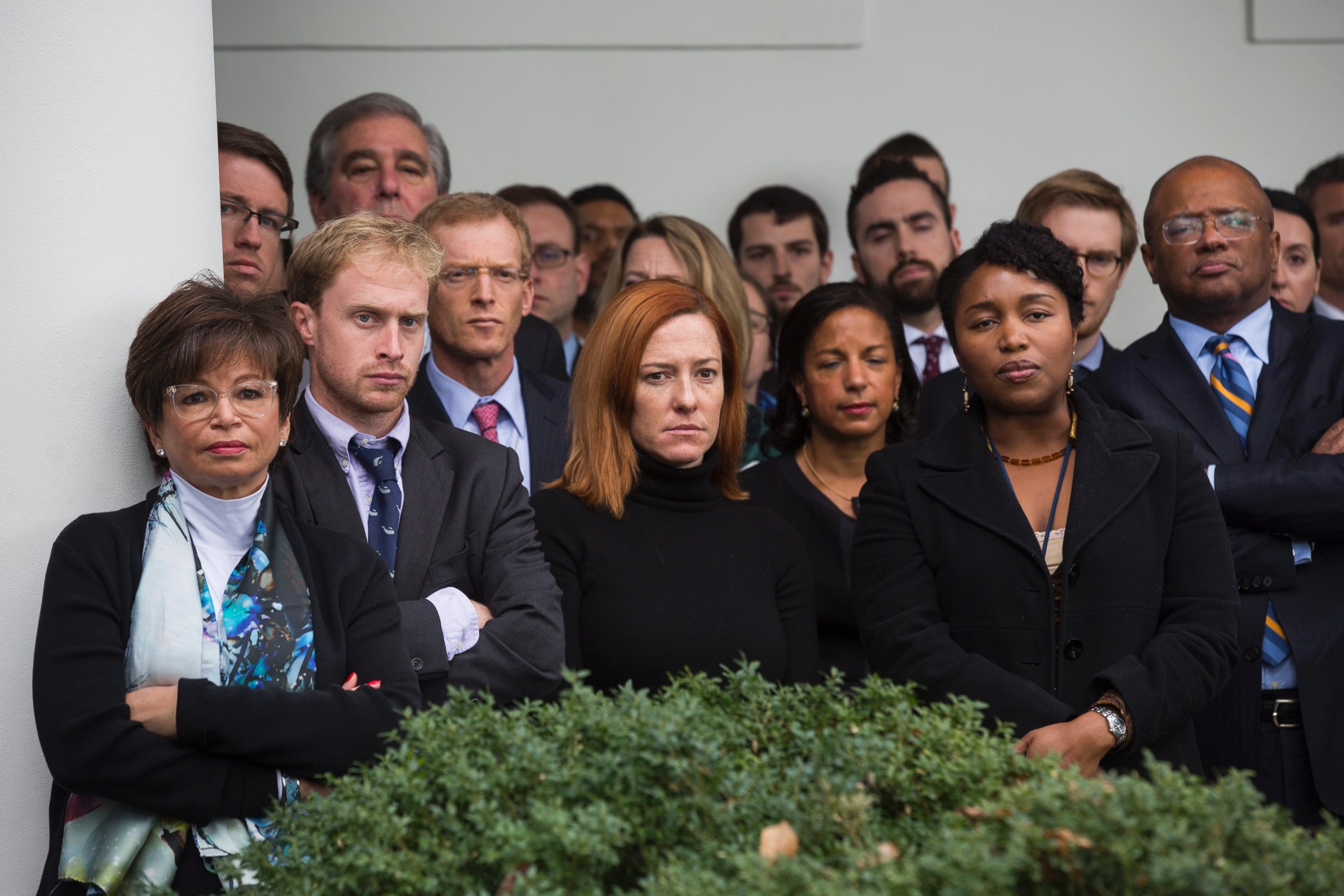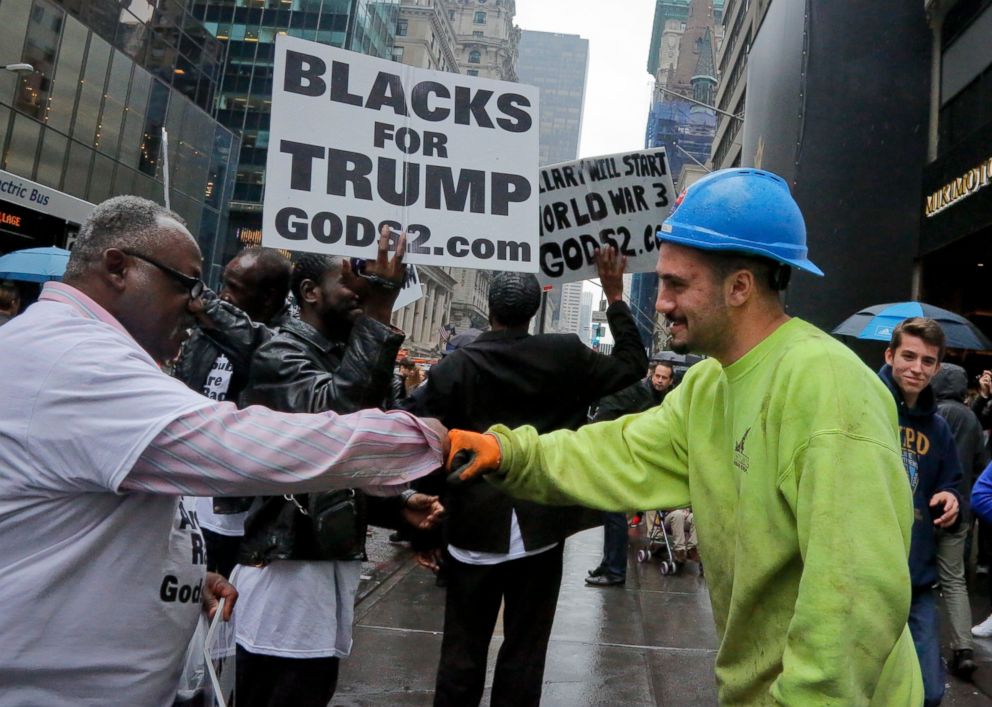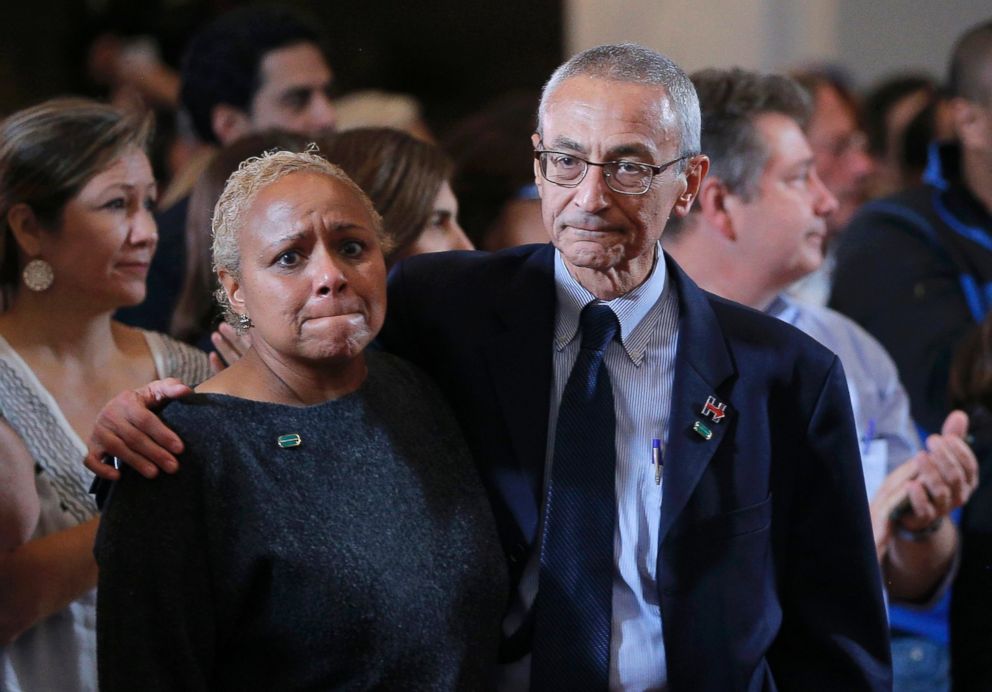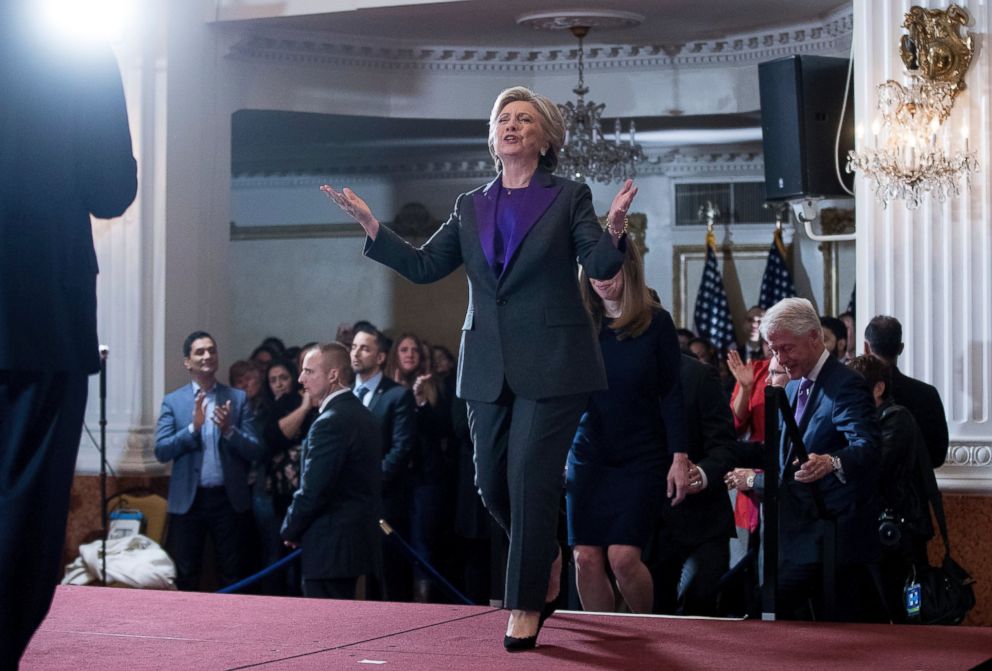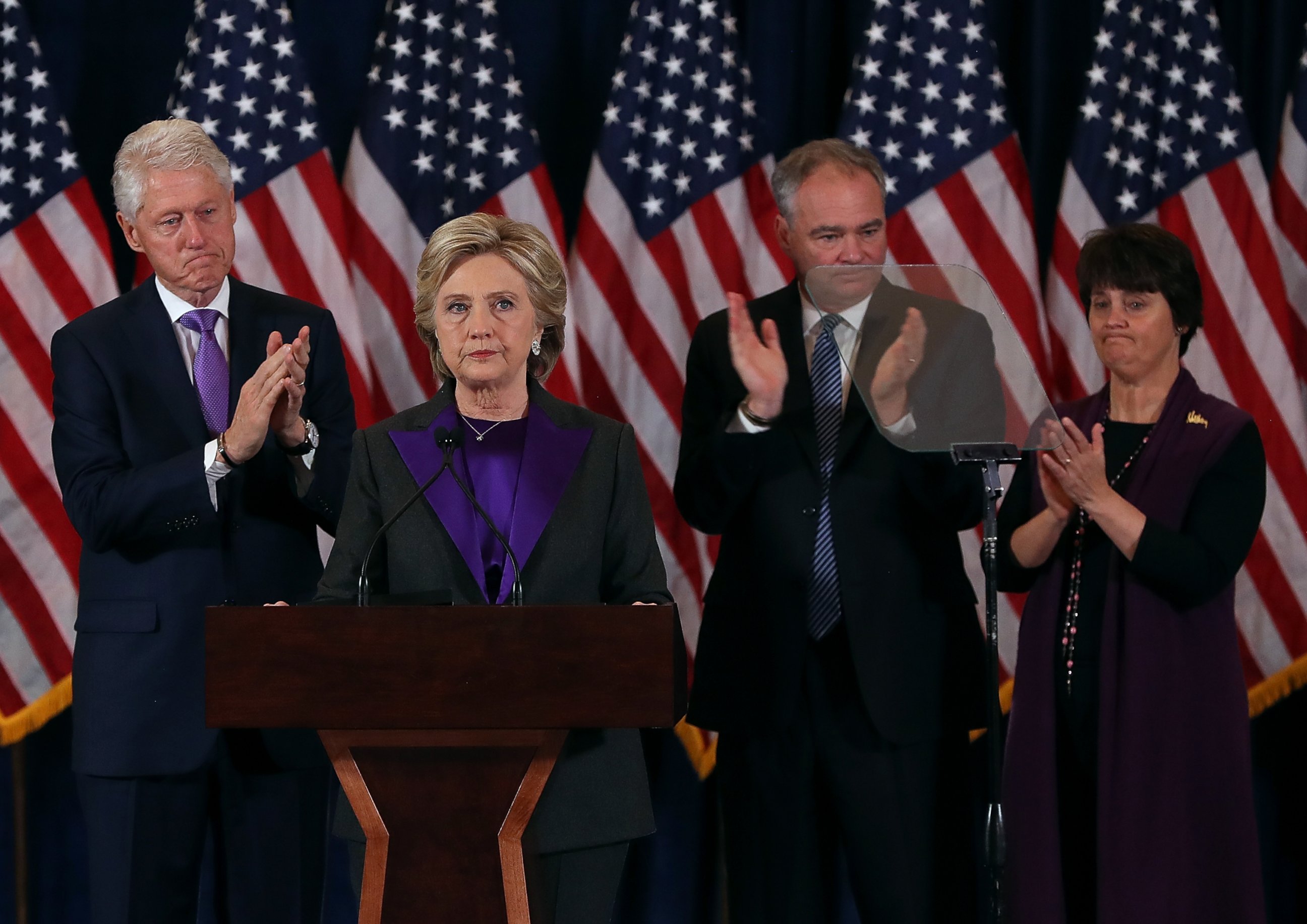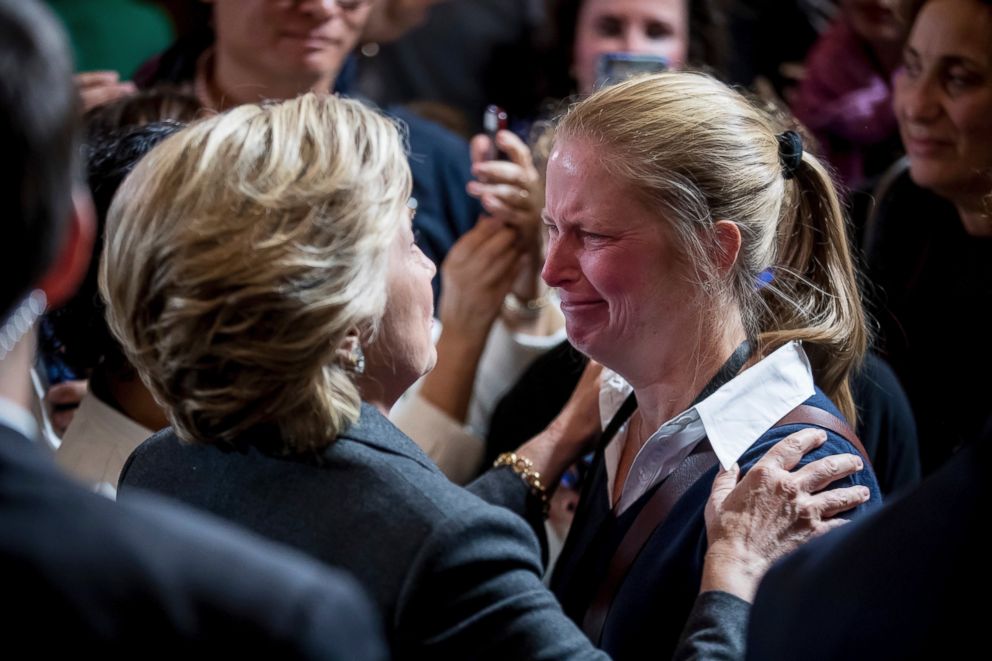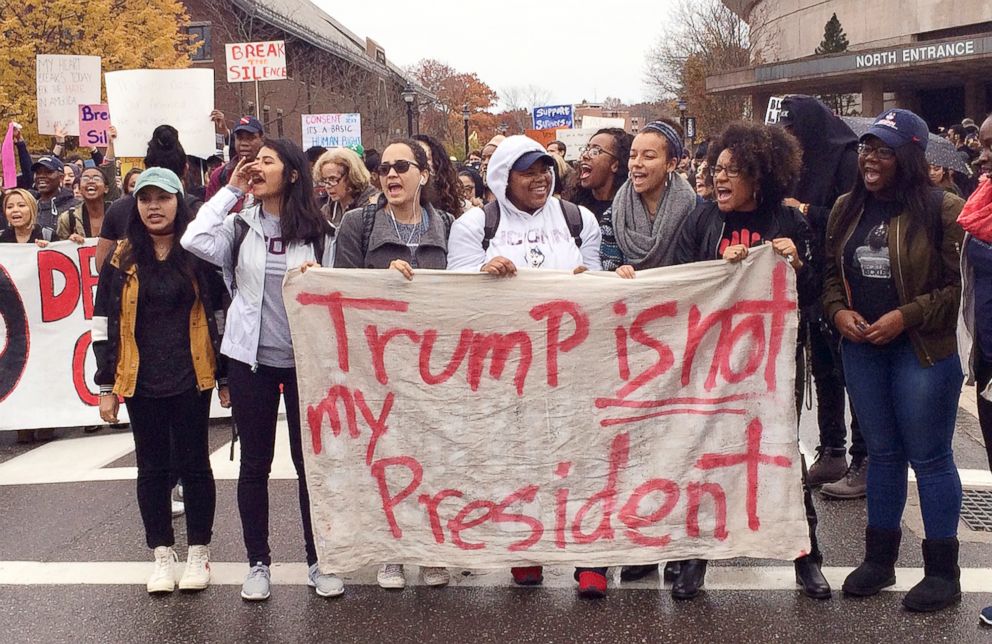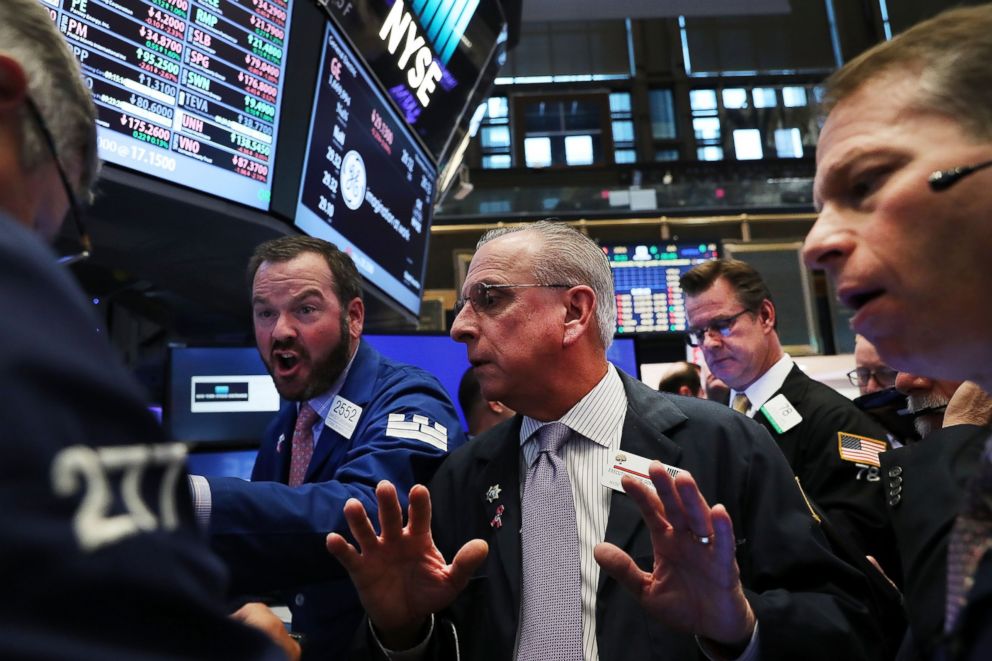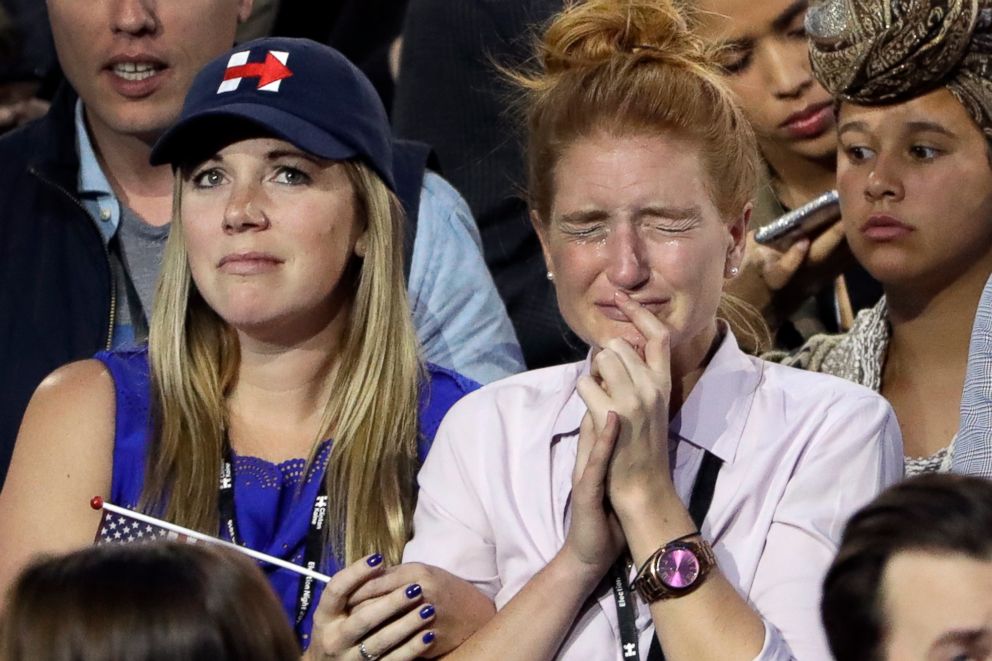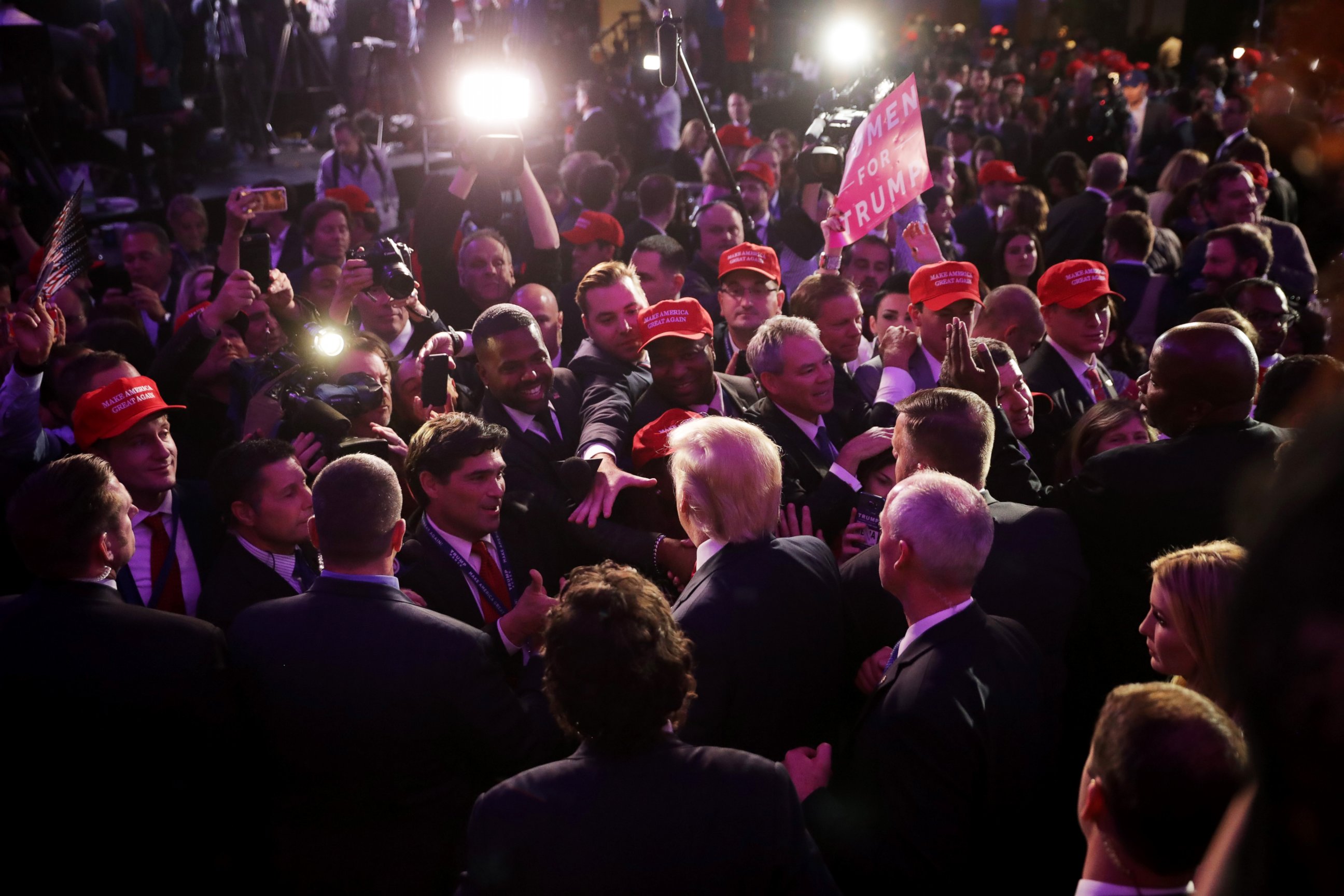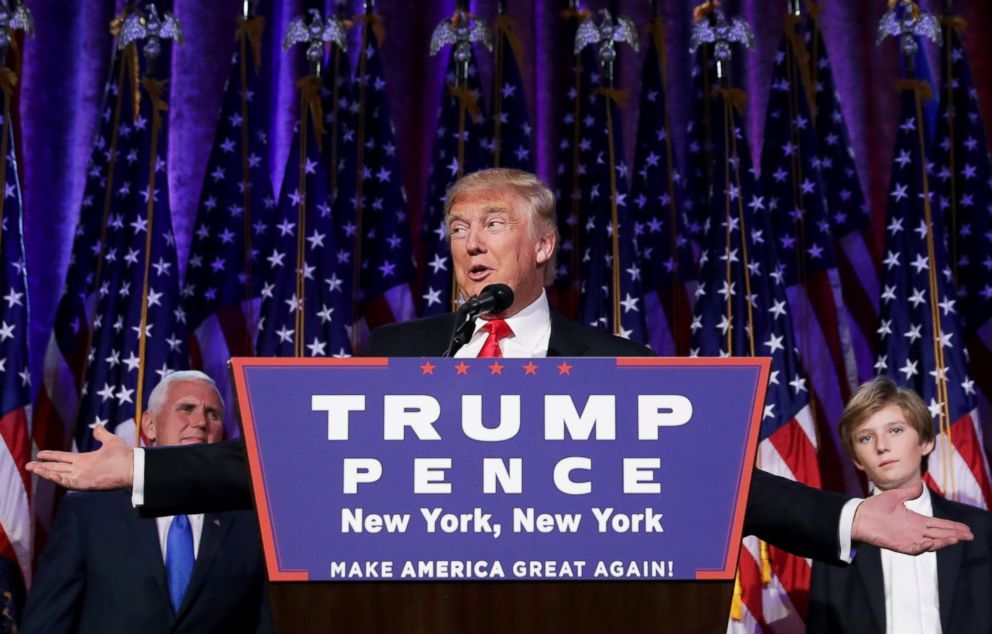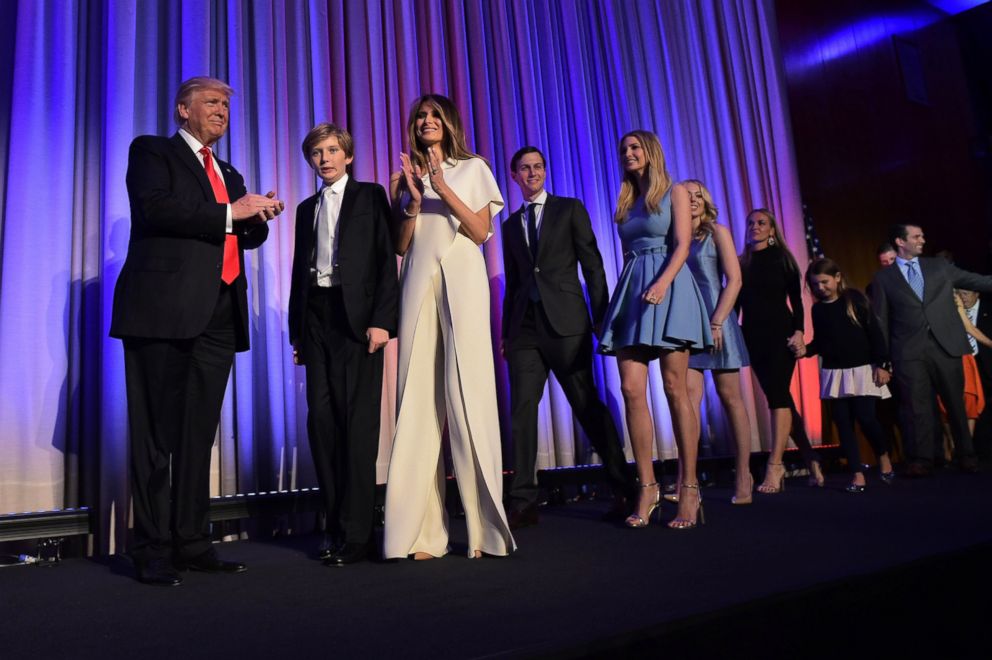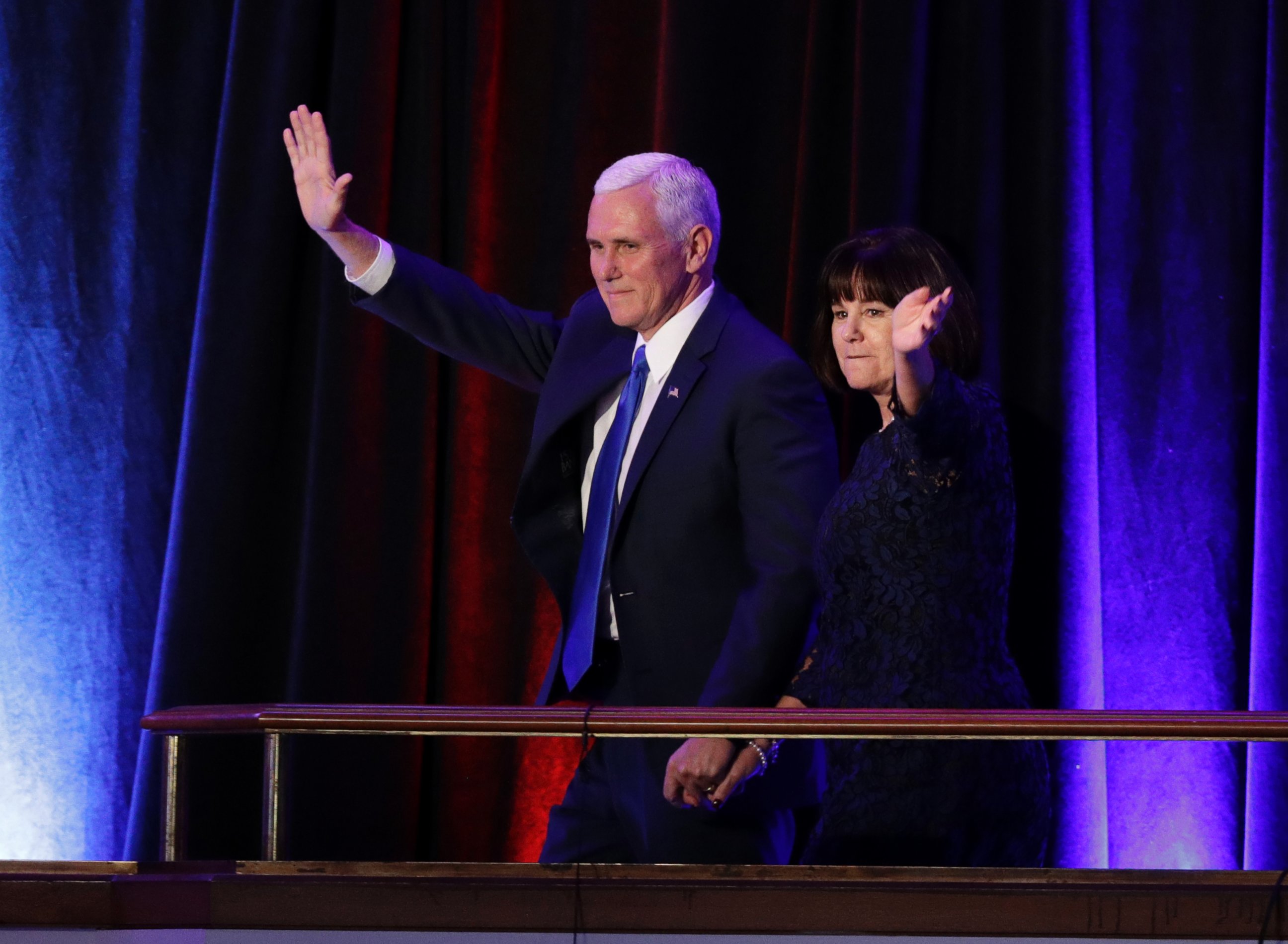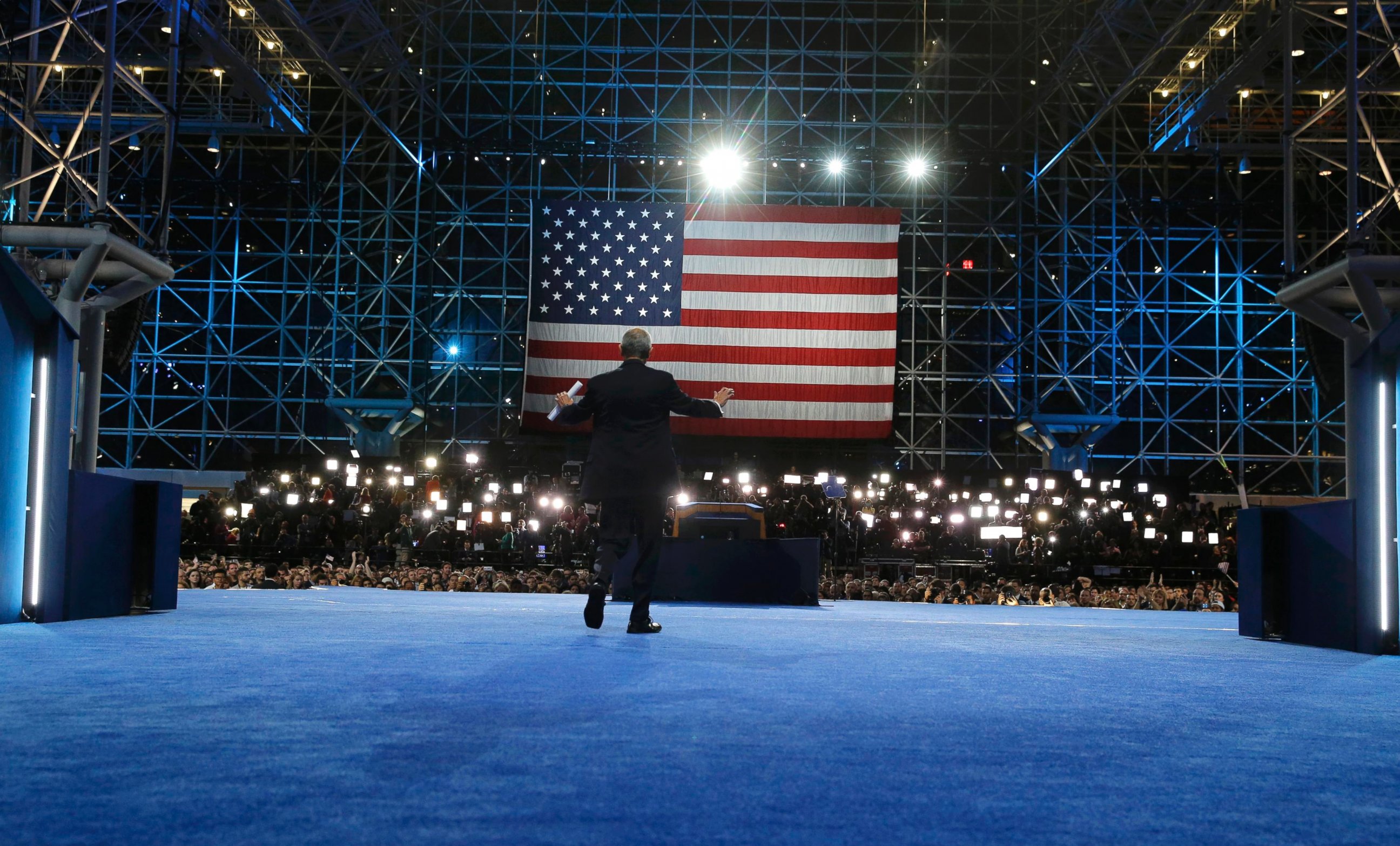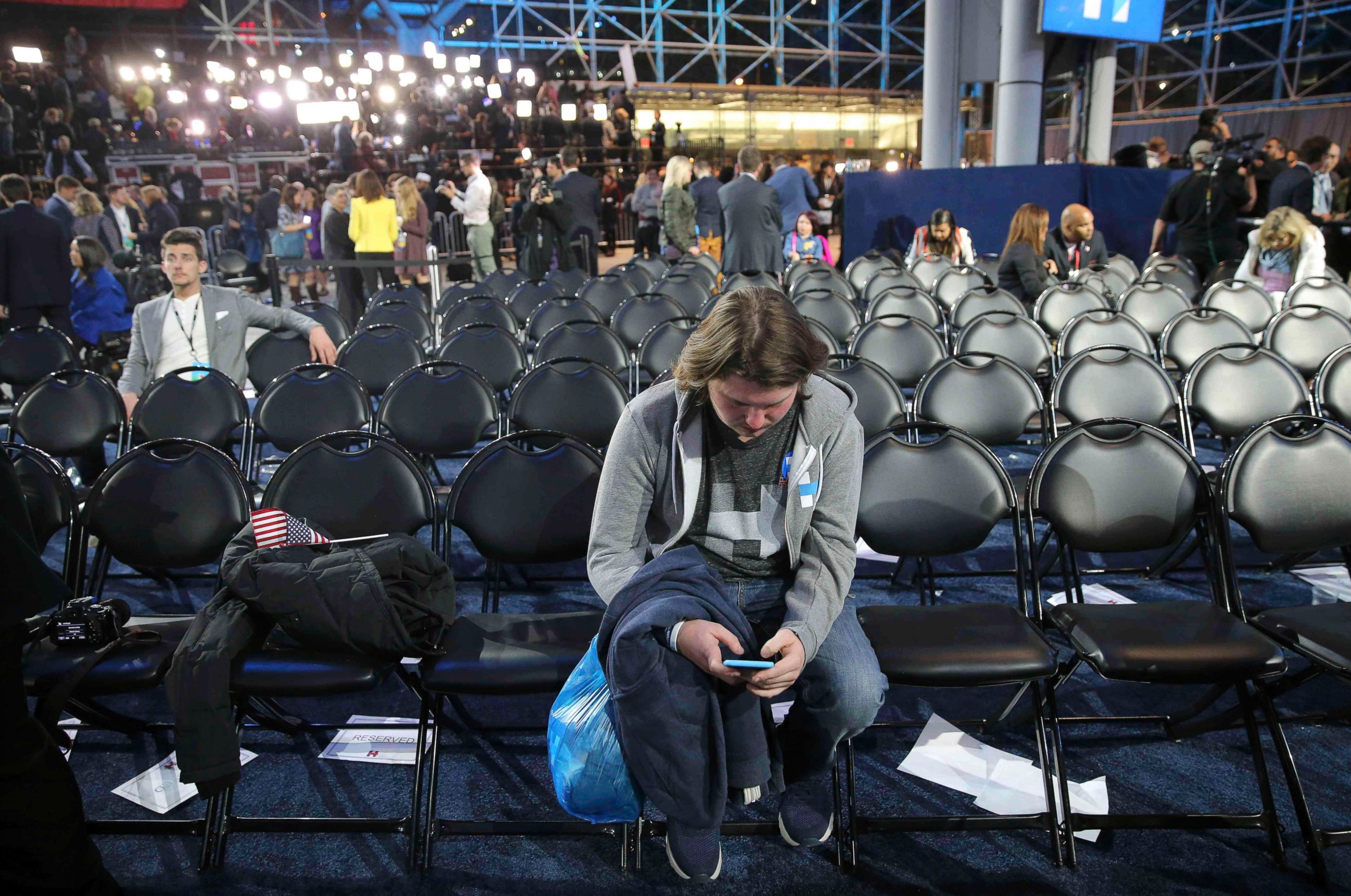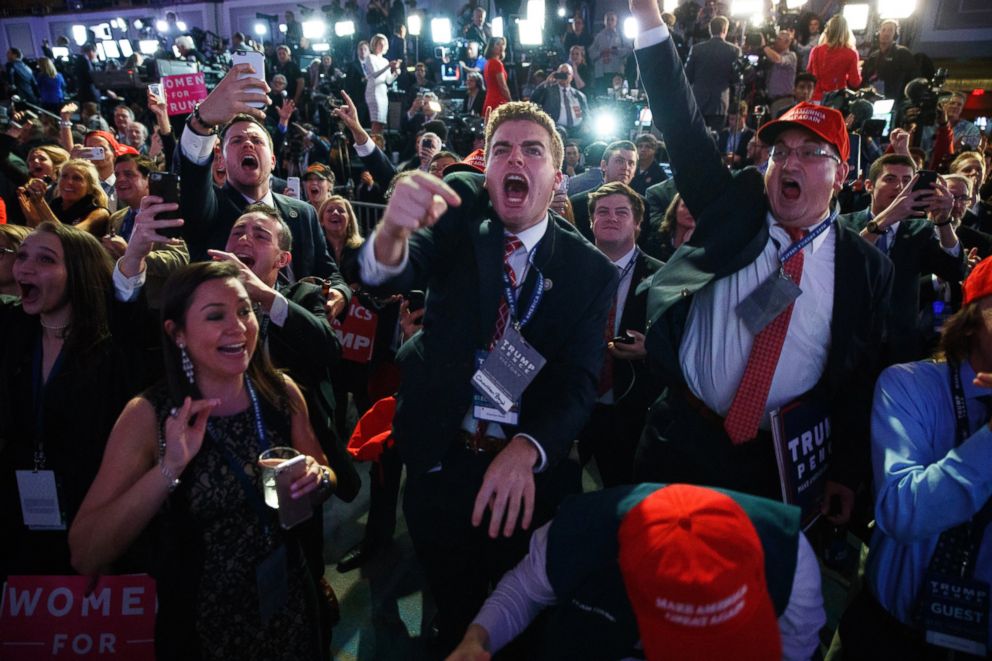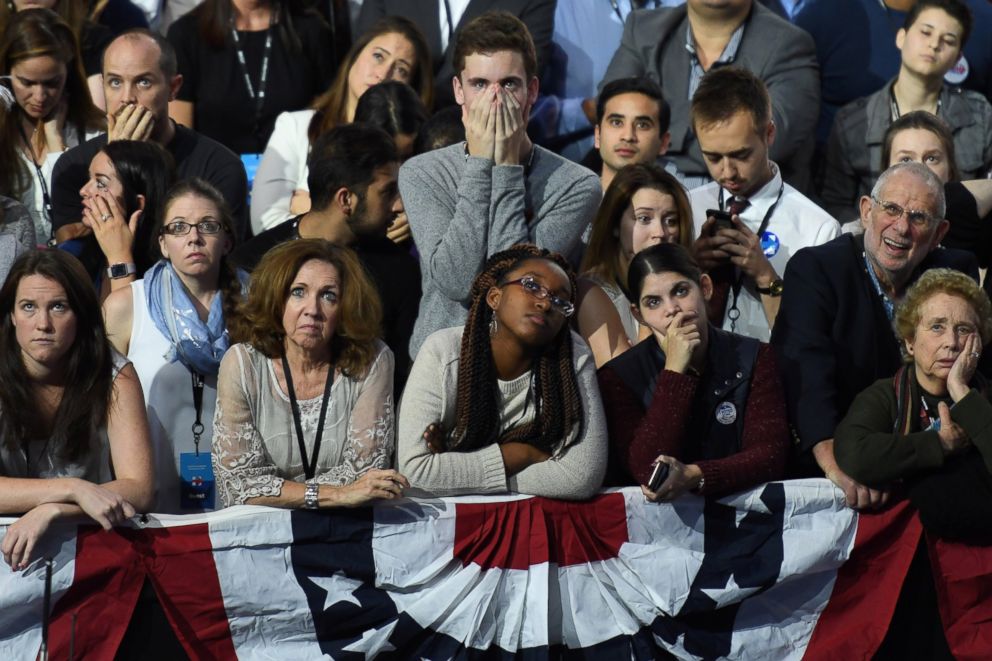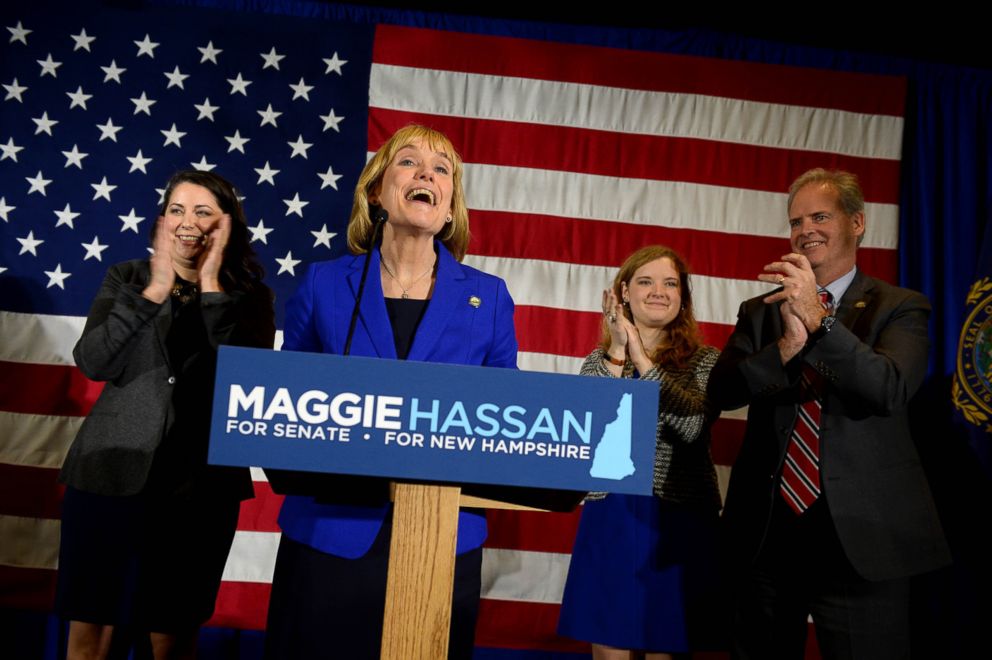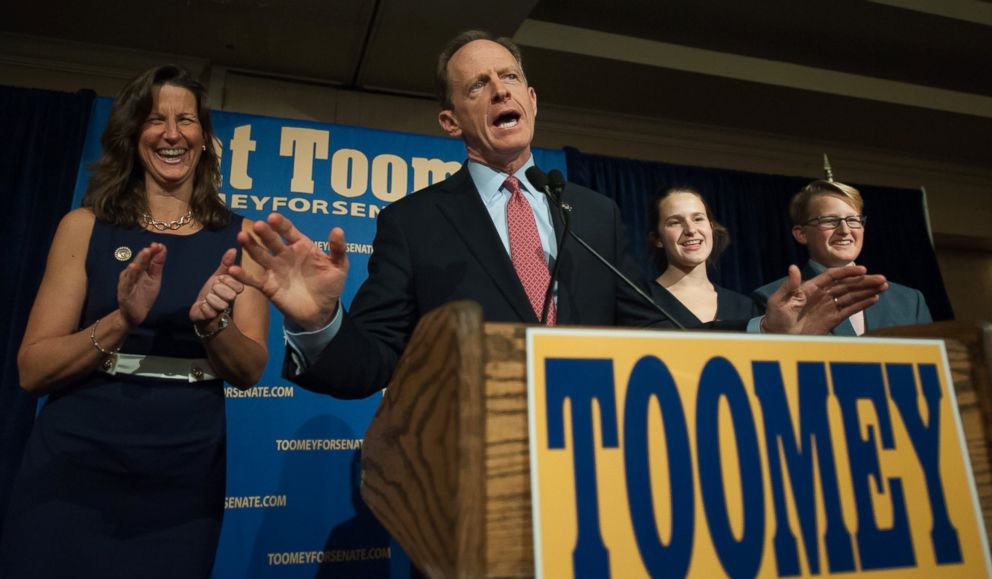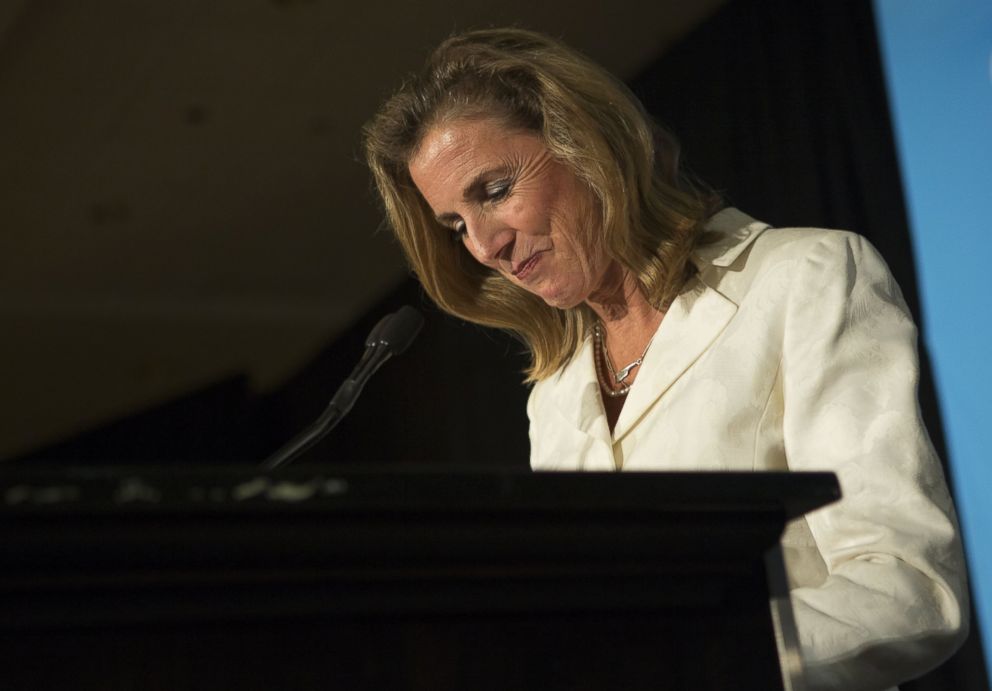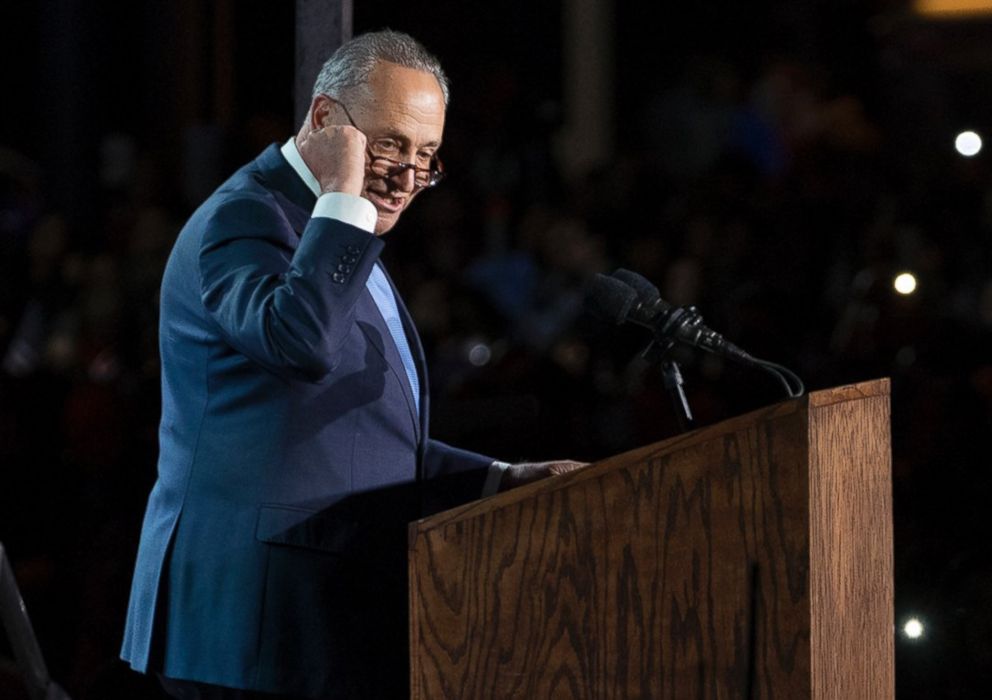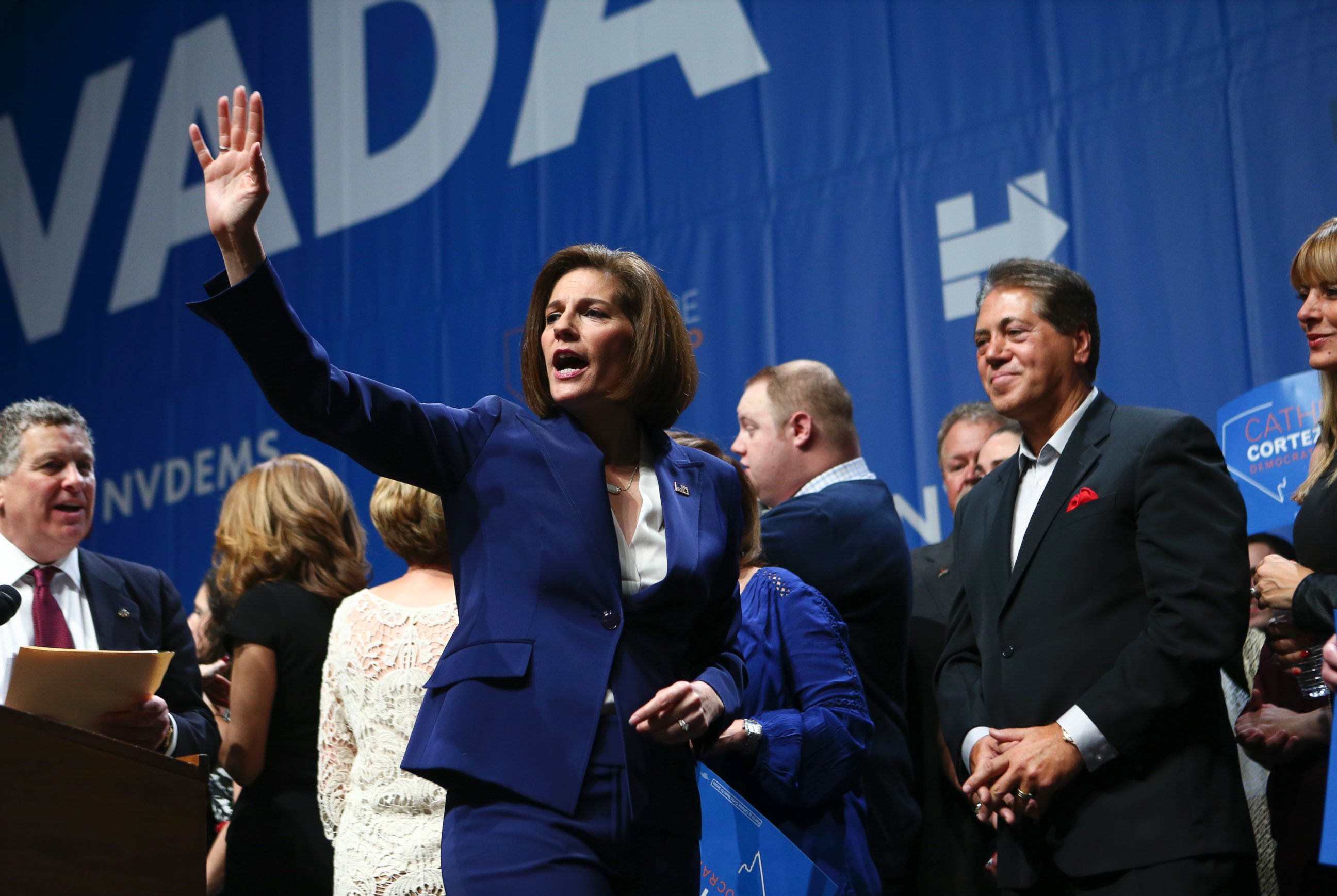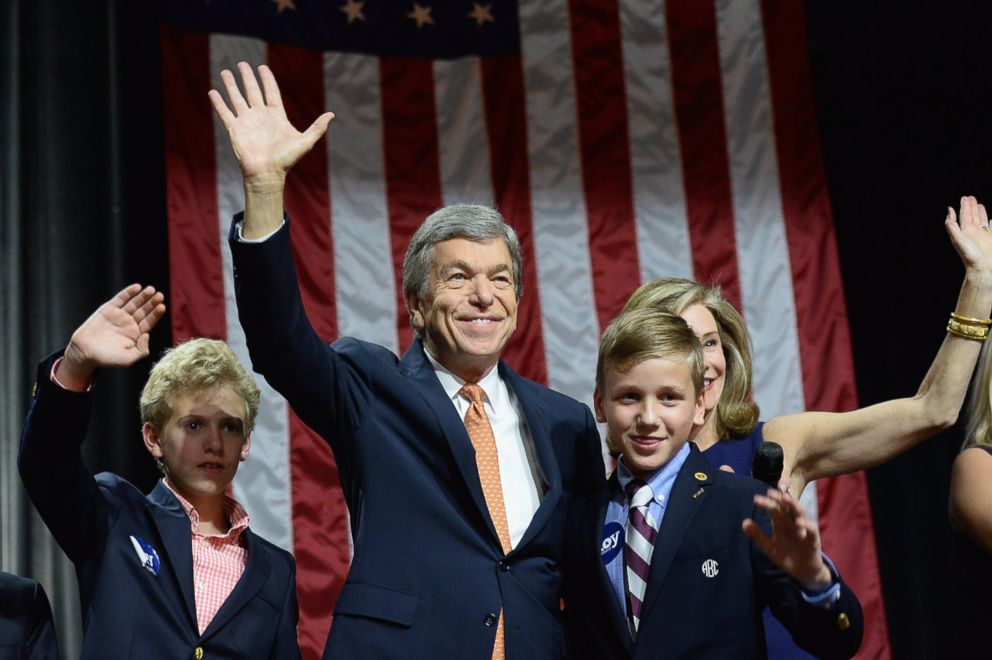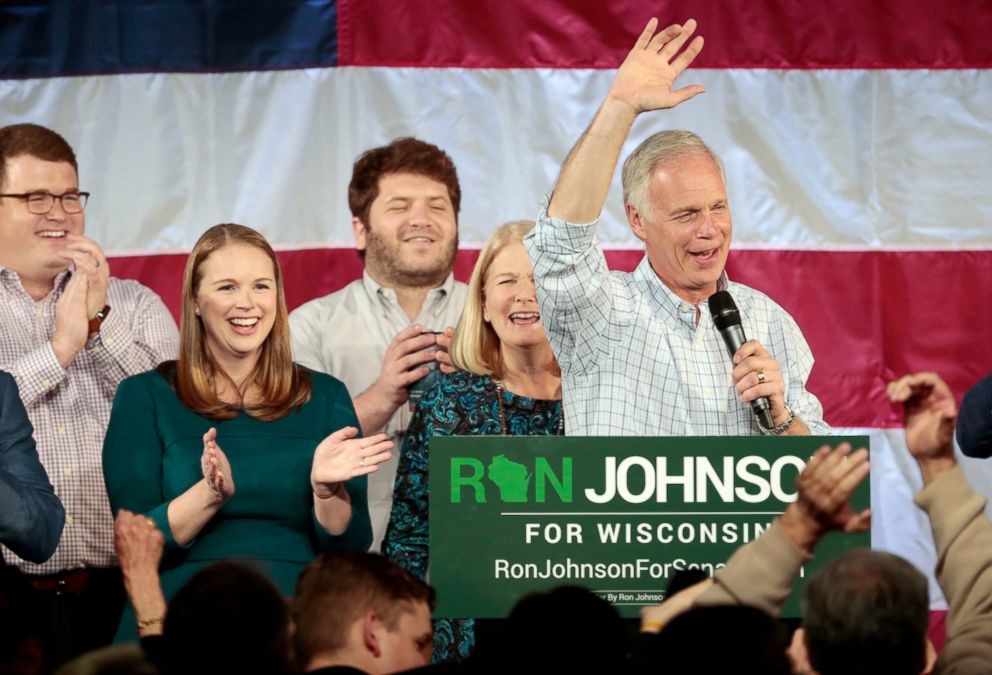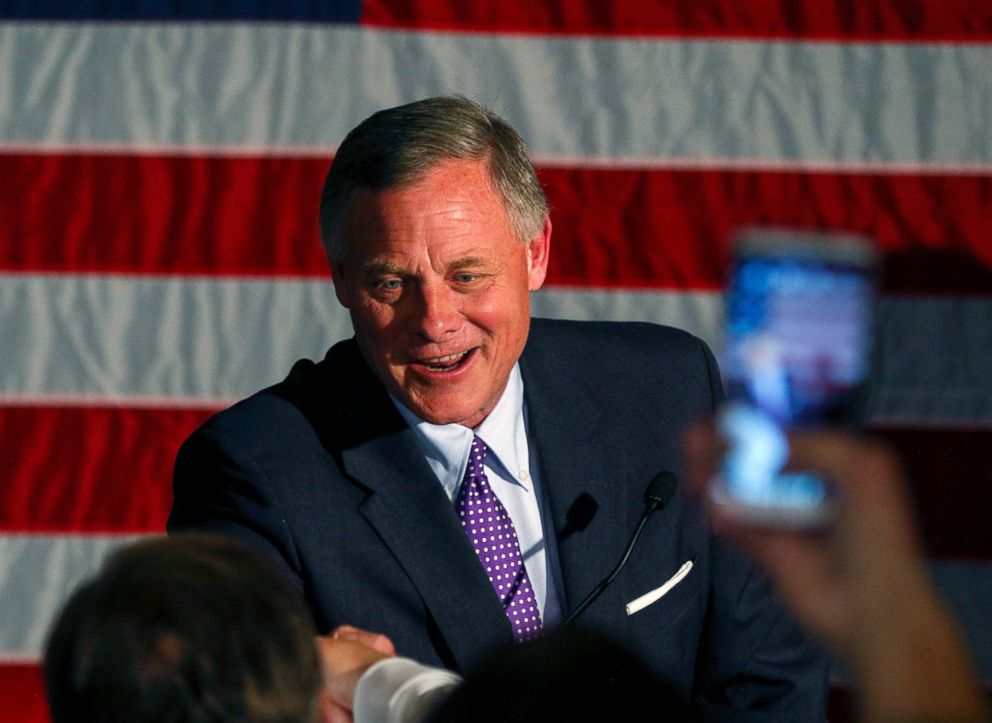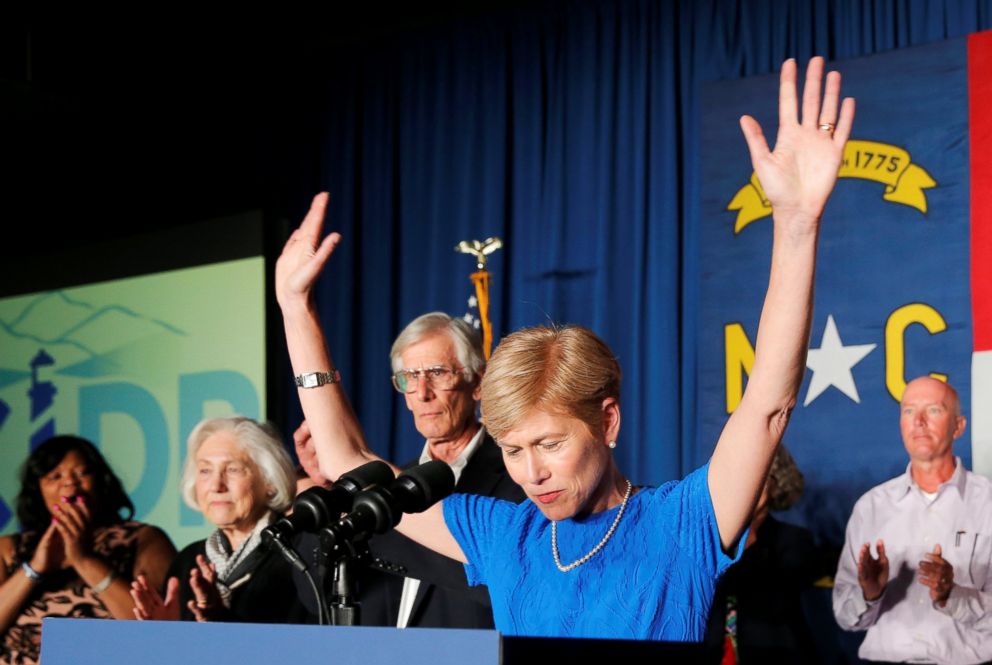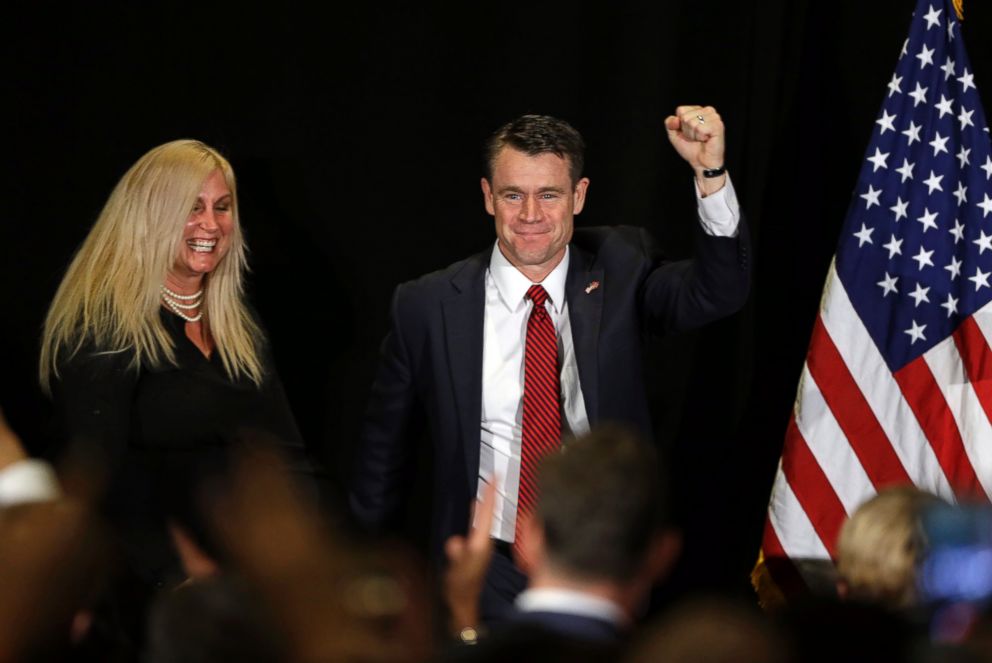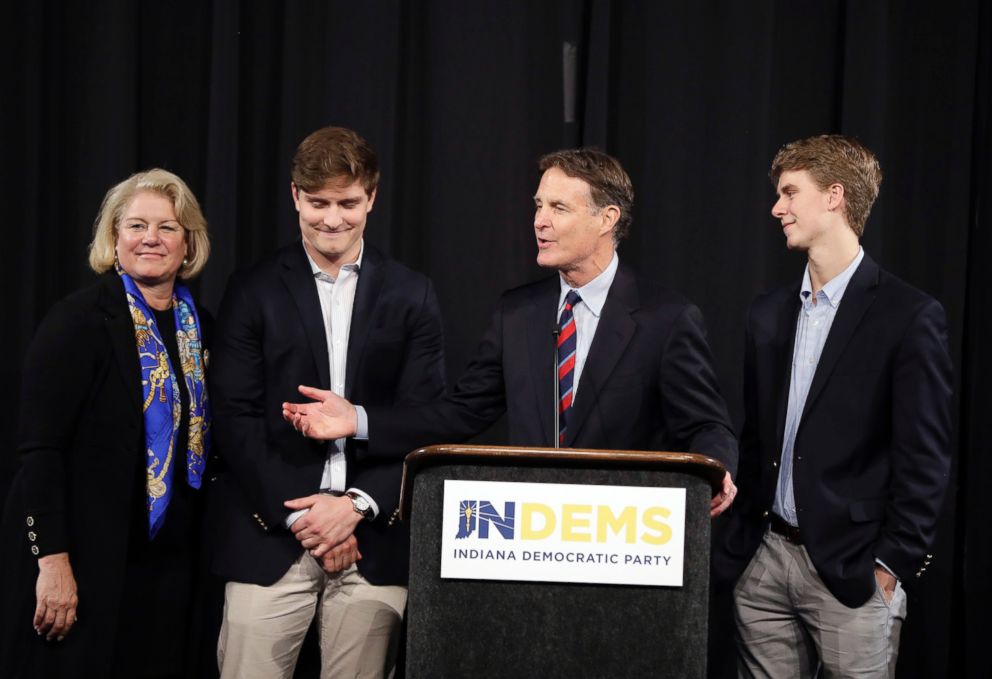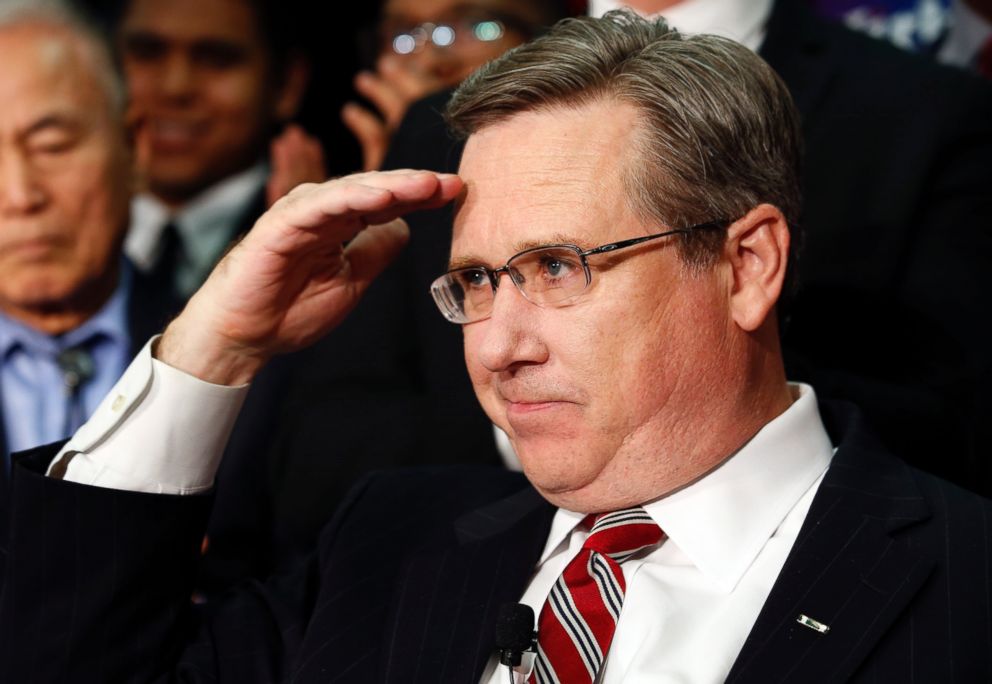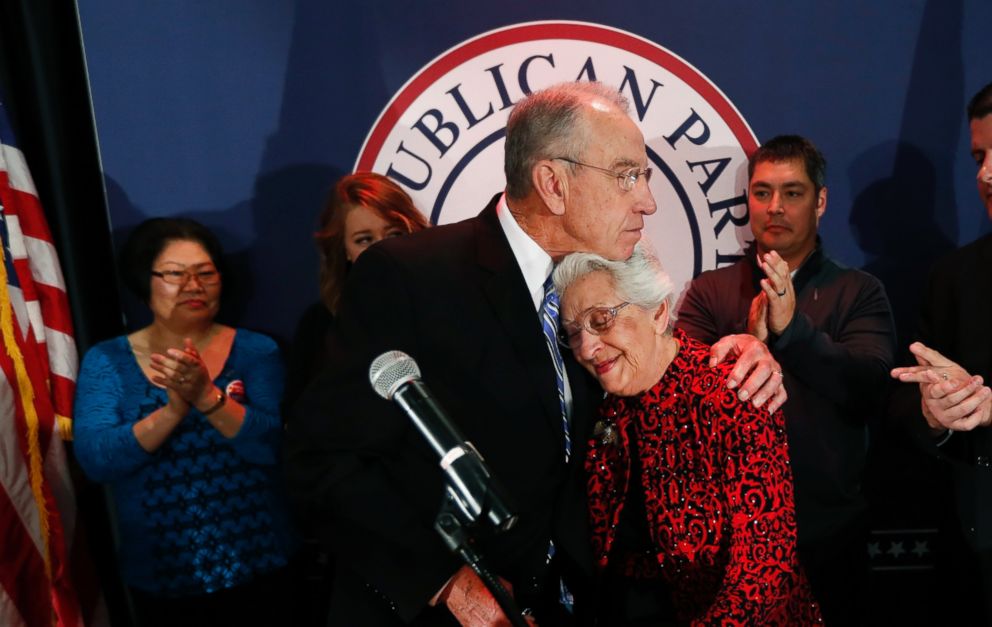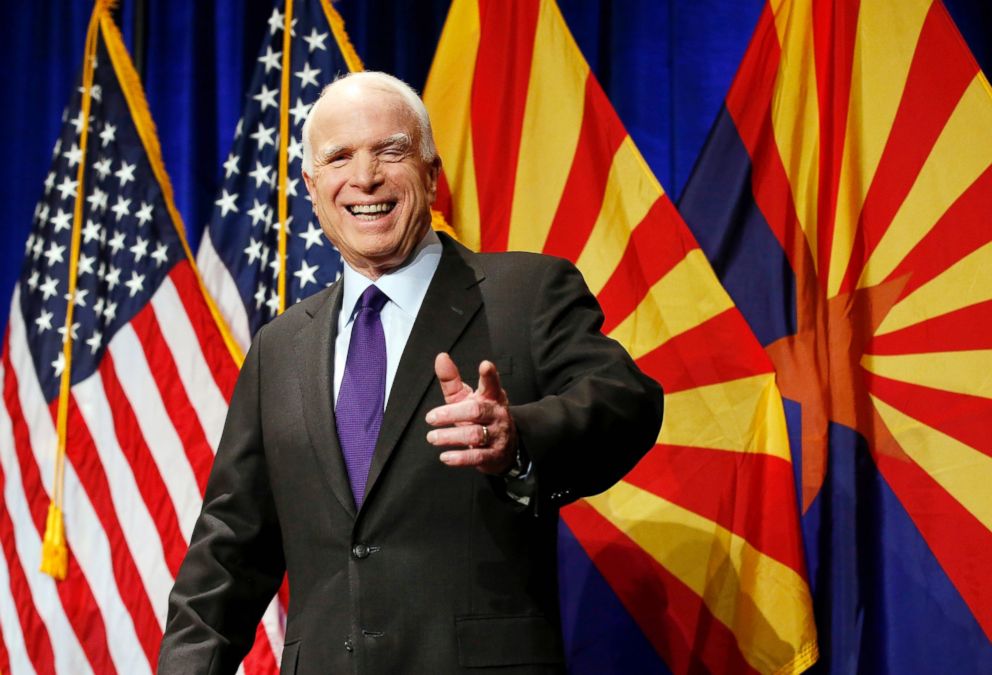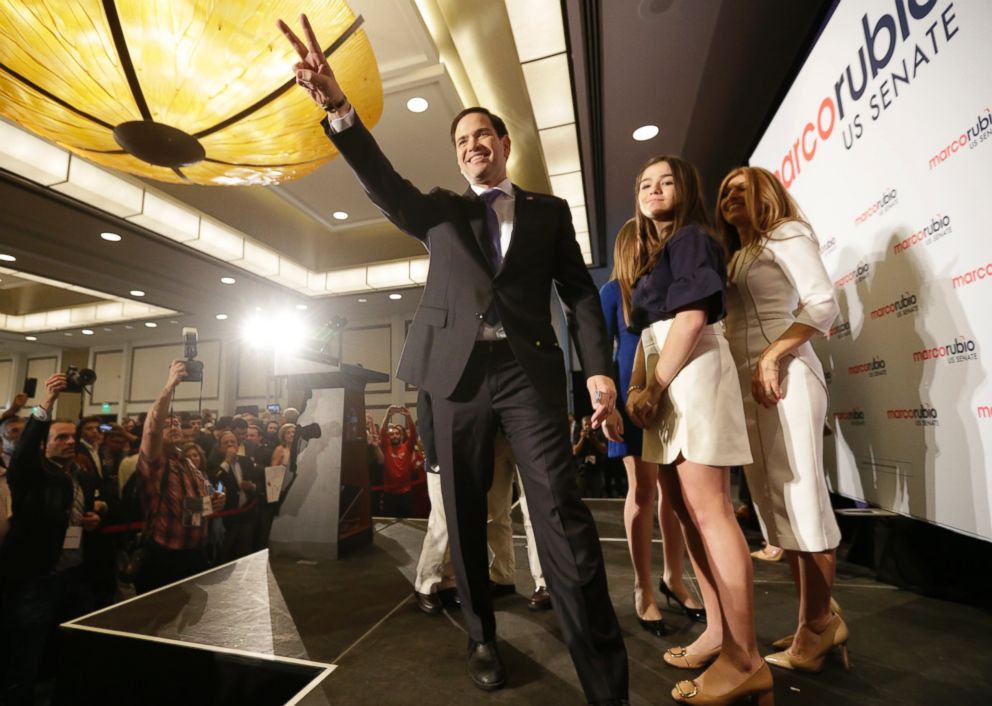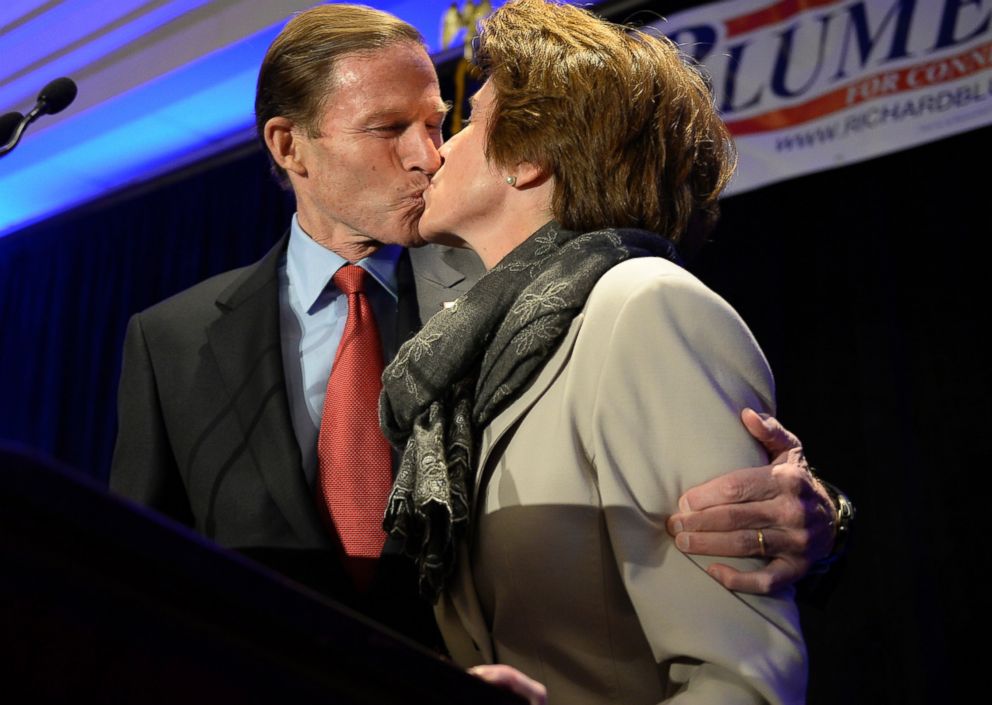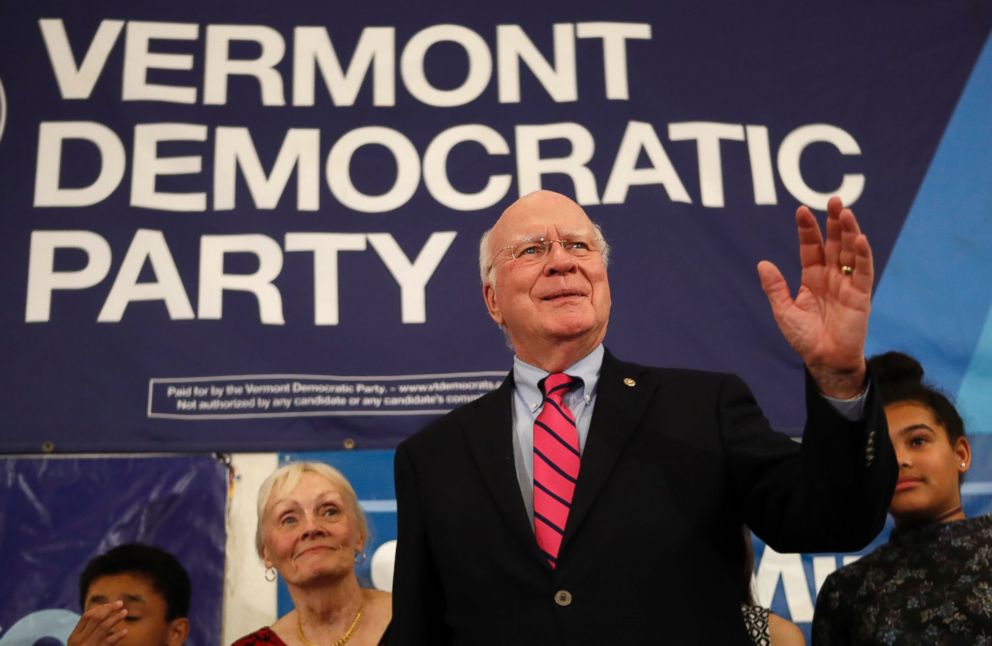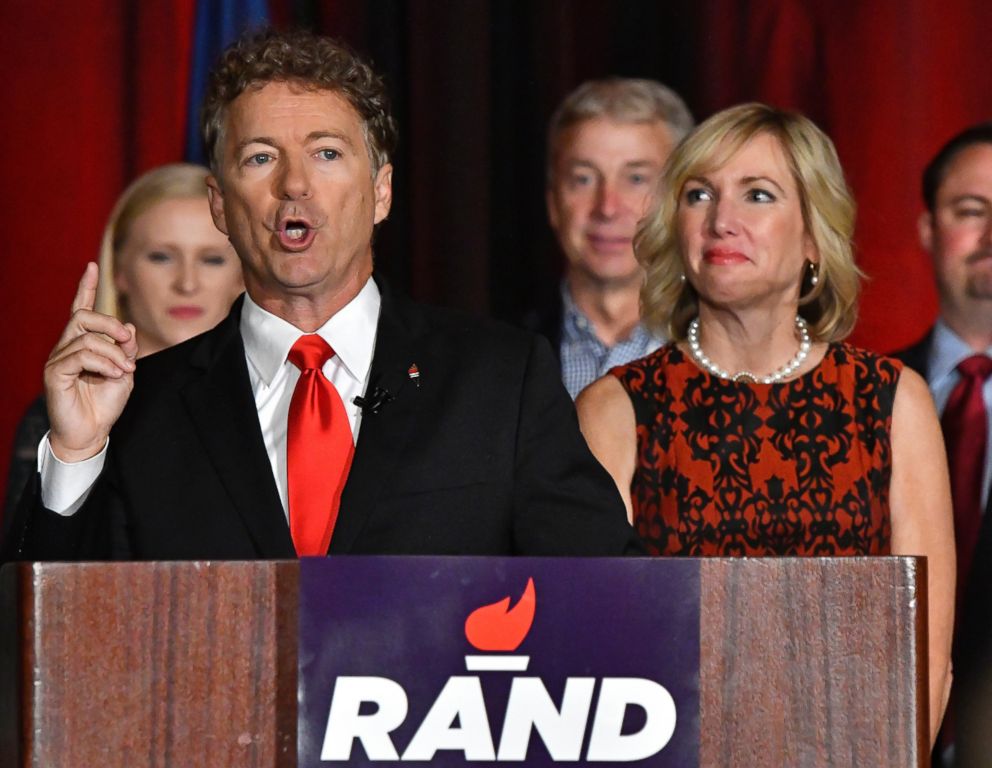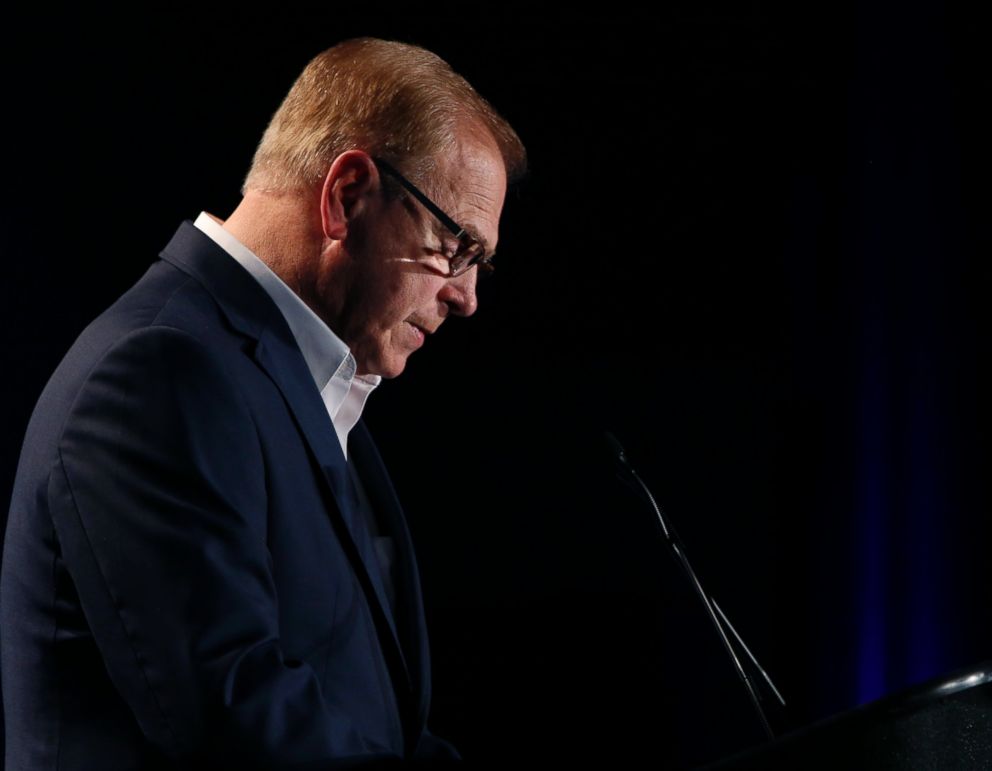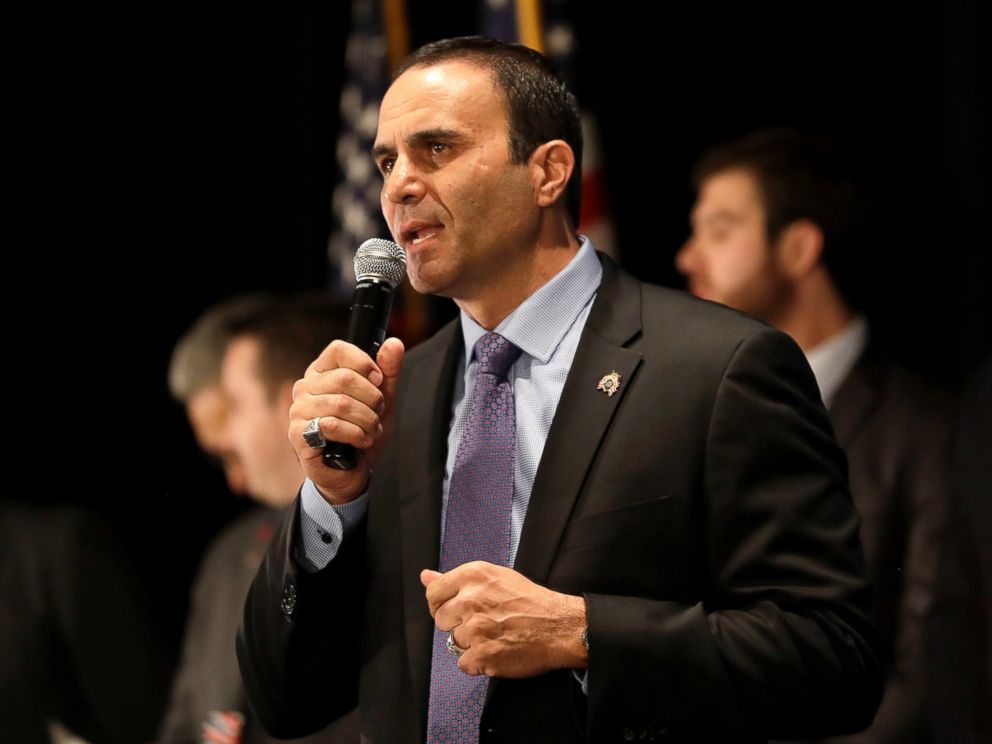Donald Trump Captures Presidency in Historic and Stunning Upset of Hillary Clinton
Hillary Clinton called Donald Trump to concede.
— -- **LATEST: Hillary Clinton calls Donald Trump to concede after Trump takes key states. **Trump was projected to win the key states of Pennsylvania and Wisconsin, two traditionally blue states.
**Full results and projections below.
Donald Trump pulled off a stunning upset Tuesday night after capturing the presidency from Hillary Clinton by grabbing key battleground states and even snatching traditional Democratic strongholds from the former secretary of state.
The victory by the political novice against the experienced stateswoman, who has spent decades in public service, stunned observers and ran contrary to late polling, which showed Clinton with a slight lead going into Election Day.
Clinton, who fought a bruising battle with Trump for months and hoped to be the first female president, called him to concede early Wednesday morning.
"I've just received a call from Secretary Clinton. She congratulated us — it's about us — on our victory, and I congratulated her and her family on a very, very hard-fought campaign," Trump said in his victory speech.
Best Photos from Election Night 2016
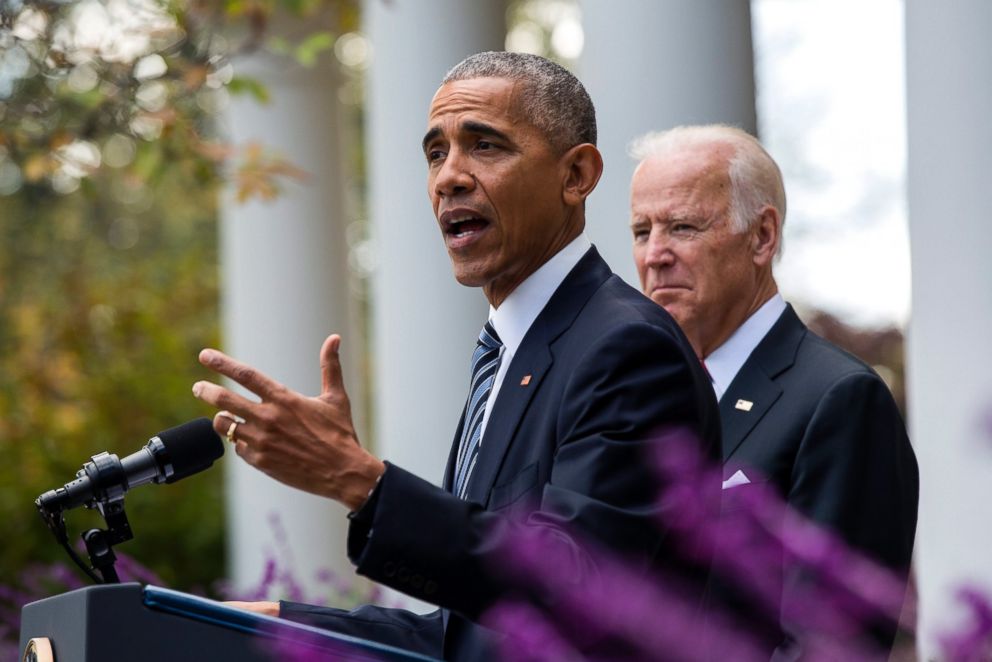
Gone was Trump's refrain, which he repeated at just about every juncture, about "crooked Hillary" and what he called her unprecedented corruption. And apparently gone was his oft-repeated rhetoric about the election's being "rigged." "Hillary has worked very long and very hard over a long period of time, and we owe her a major debt of gratitude," he said.
His support ran not only through the expected battleground states — such as Florida, North Carolina, Iowa and Ohio — but also through traditionally blue states as well, like Pennsylvania and Wisconsin. And his victory came as the GOP was projected to retaine control of the House and Senate.
What appeared to be a narrow path for Trump to win the Electoral College, assuming Democratic strongholds held, grew wider as Trump took state after state. And his lead in the popular vote, 48 to 47 percent, with 89 percent of the expected vote reporting, never waned.
With 89 percent of the expected vote in, more than 120 million ballots had been cast. Trump led the popular vote by more than 1 million votes and led the electoral vote 278 to 218.
The Clinton campaign initially said the race was too close to call, with campaign chairman John Podesta telling supporters at the Javits Center who had gathered for a victory party to go home, saying that every vote should be counted.
But Clinton later called Trump to concede, Trump said.
Exit polls provided a number of insights into the hard-fought and historic contest and exposed the deep divisions in the country. The candidates, who were widely viewed as unpopular, exposed these divisions in their candidacies.

But voters came out in droves for the real estate mogul.
TRUMP'S PATH
Trump’s path to the nomination of the Republican Party was unconventional — bulldozing over establishment candidates and stunning observers.
Trump foreshadowed the controversial nature of his campaign in his announcement — after descending the escalator in his namesake tower in midtown Manhattan on June 16, 2015. The former reality star said that some Mexicans crossing the border into the U.S. are "bringing crime, they're rapists. And some, I assume, are good people."
He was one of an extremely large number of Republican candidates early on in the primaries, which at one point included 16 others vying for the nomination.
Trump regularly criticized his opponents and was called a bully after using epithets for some of them, including "little" Marco Rubio, "lyin'" Ted Cruz, “low-energy” Jeb Bush and later "crooked" Hillary Clinton. Instead of practicing decorum at the primary debates, he went on the offensive against his opponents, belittling them and making quick and relentless work of onetime favorite Bush.
Unlike traditional candidates, who relied on large fundraisers and traditional retail politics, Trump staged rallies, which grew increasingly massive, filled with ardent supporters. The rallies were sometimes tinged with violence, with protesters and supporters clashing.
He self-funded much of his primary campaign with loans, spent next to nothing on ads and touted himself as an alternative to the tradition of Washington politics.
Trump had a round-the-clock bully pulpit in the form of his Twitter account, which he used to amass millions of followers, throw red meat to his supporters and eviscerate his opponents.
He stayed in the headlines with attacks on portions of the electorate that many viewed as offensive.
Trump proposed a ban on foreign Muslims' entering the United States in an effort to limit terrorist attacks and at one point suggested that women who seek abortions should be punished.
He posted tweets that some considered anti-Semitic and reposted others that were written by white supremacists, although he repeatedly said he was the "least racist" person. He was criticized for not immediately disavowing the support of former KKK Grand Wizard David Duke, although he eventually did.
Trump appeared to change his policy positions frequently. For instance, he at one point said that the Muslim ban was just a suggestion and quickly pivoted to say that the doctors who perform abortions should be punished if the procedure becomes illegal, not the women who have them.
The controversial nature of his campaign prompted fissures in the Republican Party. Trump was initially reluctant to say he would not run as a third party candidate if he didn't win the nomination, and many Republican leaders — including House Speaker Paul Ryan — took longer than expected to publicly endorse Trump as the party's nominee.
The lack of establishment support was glaring at the Republican National Convention in Cleveland this summer, when neither of the party's two living former presidents — George H.W. and George W. Bush — attended or even publicly endorsed the party's nominee.
Trump gained strong support largely among white voters, especially white male voters, and his campaign became inextricably linked to his slogan, "Make America great again."
His biggest campaign issues surrounded his plan to build a wall along America's southern border in an attempt to curb illegal immigration and make Mexico pay for the wall. He also called for tax cuts that will largely benefit the wealthiest Americans and for the repeal of "Obamacare."
One of the most controversial moments of the election came with the release of a previously unseen 2005 "Access Hollywood" recording of Trump speaking in extremely vulgar terms about women and how he felt that his position allowed him to "grab them by the p----." That, coupled with previous recordings from appearances on shock jock radio host Howard Stern's show, in which he talked about sexual preferences and rating women by appearance, raised regular concerns about his respect for women.
Trump regularly called the election process "rigged" during the primaries and the general election and more recently called on supporters to be vigilant on Election Day to prevent voter fraud from occurring. Several federal courts issued orders to both campaigns saying that they could not tell supporters to take any such steps on Election Day.
He suggested that he might not accept the election results if they were not what he wanted.
During his third debate against Clinton, when asked if he would accept the results, he said he "will look at it at the time." At a rally in Ohio the next day, he said, "I will totally accept the results of this great and historic presidential election — if I win."
Despite falling behind Clinton in the polls in mid-October and staging what some called a lackluster convention, Trump persevered, whipping up his base and even making appeals to groups that the Republican Party has typically struggled with. Trump made an appeal to the African-American community, despite polling in the single digits, asking, "What do you have to lose?" and describing hellish living conditions in the inner cities.
He made a last-ditch effort to capture traditionally blue states, appealing to Rust Belt workers whose jobs have disappeared.
He made a protectionist America-first argument throughout the campaign, emphasizing returning jobs and manufacturing to the country, restoring safety to cities through respect for law enforcement and rebuilding the military. He sought to project toughness in the face of what he characterized as the prevaricating and politically correct establishment, even of his own party — one example of which was his regular criticisms of the "weak" Speaker of the House Paul Ryan.
He sought to cast himself as a maverick beholden to no one who alone could fix the country's problems, and he sent the leadership of the Republican Party into tumult. He made himself out to be a blue collar billionaire who could relate to miners and janitors alike and built a coalition of disaffected workers who had been struggling for a voice.
And in the end, it worked.
RESULTS AND PROJECTIONS
7 P.M. E.T.
Georgia: ABC News projects that TRUMP will win Georgia, based on exit poll and vote analysis.
Indiana: ABC News projects that TRUMP will win Indiana, based on exit poll analysis.
Kentucky: ABC News projects that TRUMP will win Kentucky, based on exit poll analysis.
South Carolina: ABC News projects that TRUMP will win South Carolina, based on exit poll and vote analysis.
Vermont: ABC News projects that CLINTON will win Vermont, based on exit poll analysis.
Virginia: ABC News projects that CLINTON will win Virginia, based on exit poll analysis.
7:30 P.M. E.T.
North Carolina: ABC News projects that TRUMP will win North Carolina, based on exit poll and vote analysis.
Ohio: ABC News projects that TRUMP will win Ohio, based on exit poll analysis.
West Virginia: ABC News projects that TRUMP will win West Virginia, based on exit poll analysis.
8 P.M. E.T.
Alabama: ABC News projects that TRUMP will win Alabama, based on exit poll and vote analysis.
Connecticut: ABC News projects that CLINTON will win Connecticut, based on exit poll and vote analysis.
Delaware: ABC News projects that CLINTON will win Delaware, based on exit poll analysis.
District of Columbia: ABC News projects that CLINTON will win Washington, D.C., based on exit poll analysis.
Florida: ABC News projects that TRUMP will win Florida, based on exit poll and vote analysis.
Illinois: ABC News projects that CLINTON will win Illinois, based on exit poll analysis.
Maine: ABC News projects that CLINTON will win three of Maine's electoral votes TRUMP one based on vote analysis.
Maryland: ABC News projects that CLINTON will win Maryland, based on exit poll analysis.
Massachusetts: ABC News projects that CLINTON will win Massachusetts, based on exit poll analysis.
Mississippi: ABC News projects that TRUMP will win Mississippi, based on exit poll analysis.
Missouri: ABC News projects that TRUMP will win Missouri, based on exit poll and vote analysis.
New Hampshire
New Jersey: ABC News projects that CLINTON will win New Jersey, based on exit poll analysis.
Oklahoma: ABC News projects that TRUMP will win Oklahoma, based on exit poll analysis.
Pennsylvania: ABC News projects that TRUMP will win Pennsylvania, based on vote analysis.
Rhode Island: ABC News projects that CLINTON will win Rhode Island, based on exit poll analysis.
Tennessee: ABC News projects that TRUMP will win Tennessee, based on exit poll and vote analysis.
8:30 P.M. E.T.
Arkansas: ABC News projects that TRUMP will win Arkansas, based on exit poll and vote analysis.
9 P.M. E.T.
Arizona
Colorado: ABC News projects that CLINTON will win Colorado, based on exit poll and vote analysis.
Kansas: ABC News projects that TRUMP will win Kansas, based on exit poll analysis.
Louisiana: ABC News projects that TRUMP will win Louisiana, based on exit poll and vote analysis.
Michigan
Minnesota
Nebraska: ABC News projects that TRUMP will win Nebraska, based on exit poll analysis.
New Mexico: ABC News projects that CLINTON will win New Mexico, based on exit poll and vote analysis.
New York: ABC News projects that CLINTON will win New York, based on exit poll analysis.
North Dakota: ABC News projects that TRUMP will win North Dakota, based on exit poll analysis.
South Dakota: ABC News projects that TRUMP will win South Dakota, based on exit poll analysis.
Texas: ABC News projects that TRUMP will win Texas, based on exit poll analysis.
Wisconsin: ABC News projects that TRUMP will win Wisconsin, based on exit poll analysis.
Wyoming: ABC News projects that TRUMP will win Wyoming, based on exit poll analysis.
10 P.M. E.T.
Iowa: ABC News projects that TRUMP will win Iowa, based on exit poll and vote analysis.
Montana: ABC News projects that TRUMP will win Montana, based on exit poll analysis.
Nevada: ABC News projects that CLINTON will win Nevada, based on vote analysis.
Utah: ABC News projects that TRUMP will win Utah, based on exit poll and vote analysis.
11 P.M. E.T.
California: ABC News projects that CLINTON will win California, based on exit poll analysis.
Hawaii: ABC News projects that CLINTON will win Hawaii, based on exit poll analysis.
Idaho: ABC News projects that TRUMP will win Idaho, based on exit poll analysis.
Oregon: ABC News projects that CLINTON will win Oregon, based on exit poll analysis.
Washington: ABC News projects that CLINTON will win Washington, based on exit poll and vote analysis.
1 A.M. E.T.
Alaska: ABC News projects that TRUMP will win Alaska, based on vote analysis.
